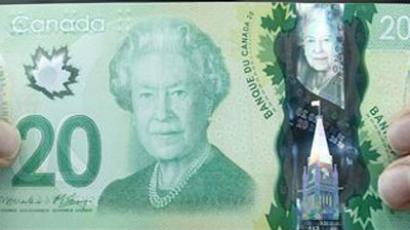Canada kills controversial internet surveillance bill

The Conservative Canadian government is abandoning its much-criticized internet surveillance bill, which would have allowed the government to keep tabs on its citizens and was disguised under the cloak of fighting child pornographers.
Justice Minister Rob Nicholson announced that Bill C-30, which caused public ire over privacy, is dead. “We’ve listened to the concerns of Canadians,” Nicholson told reporters. “We will not be proceeding with Bill C-30 … including the warrantless mandatory disclosure of basic subscriber information, or the requirement for telecommunications service providers to build intercept capabilities within their systems”.Bill C-30 or otherwise known as the Protecting Children from Internet Predators Act was introduced in Parliament less than a year ago, and it was presented as a choice that Canadians must make: to either support the bill or be on the side of child pornographers. "He can either stand with us or stand with the child pornographers," argued Public Safety Minister Vic Toews in Parliament while attacking the opposition last February.This comment led to public outrage, raising privacy concerns across the nation. What made the legislation dangerous was that it forced Internet service providers to have systems that allowed police to intercept and track online communications. Also, it would have permitted authorities to have warrantless access to Internet subscriber information, including name, address, telephone number, email address and Internet protocol address.But, activists viewed the proposed bill as a huge infringement on privacy. “This is a great day,” critic of the bill, Ontario Privacy Commissioner Ann Couvukian told The Globe and Mail, “This is a victory for privacy and for freedom.”International hacktivist movement Anonymous also hailed the killing of the bill.
Canadian government killing online surveillance bill cbc.ca/news/technolog… That's how you do it! USA you should do the same :P
— Anonymous (@YourAnonNews) 12 февраля 2013 г.
The killing of the bill in Canada is a major win for Canadians supporting privacy and internet freedom. But, the battle over internet surveillance and wiretapping continues inside the country, with Bill C-12 still remaining before Parliament and if passed it would allow Internet service providers, email hosts and social media sites to voluntarily share personal information about their clients with the police.Also, as was announced on Monday, Canadian authorities will be permitted to tap people’s phones without warrants in emergency circumstances or imminent harm such as in bombings or kidnappings. Nicholson said that under the new guidelines, people whose phones were tapped in emergency situations would be notified within 90 days.
US’ similar privacy concerns still stand
The US is facing similar privacy debacle with the Cyber Intelligence Sharing and Protection Act (CISPA). The bill is supposed to help the US government investigate cyber threats and ensure the security of networks against cyber attack.Opponents say it would allow companies to hand over a user’s private browsing information to the government, allowing authorities to spy on American citizens rather than simply track down cyber threats.Unable to reach a deal with Congress, President Obama plans to use his power to exert executive actions against the will of lawmakers.The order is a direct response to Congress’ refusal to pass CISPA last year, as members of Congress who opposed the legislation cited serious privacy concerns over giving the government greater access to Americans’ personal information that only private companies and servers might have access to.














